
Oyster Bay: The Jewel of Dar es Salaam
Discover the charm of Oyster Bay in Dar es Salaam, where stunning beaches, vibrant culture, and delicious cuisine combine to create an unforgettable experience.
Oyster Bay is a vibrant and picturesque neighbourhood in Dar es Salaam, Tanzania. Known for its stunning coastal views and relaxed atmosphere, it offers a perfect mix of urban amenities and natural beauty. The area is famous for its beautiful beaches, where you can soak up the sun or take a refreshing dip in the Indian Ocean. The beachfront promenade is a popular spot for evening walks, giving visitors a chance to enjoy the cool sea breeze and breathtaking sunsets. Oyster Bay is also a cultural hub, home to several art galleries and cultural centres. The Tingatinga Arts Cooperative Society is a must-visit for art enthusiasts, showcasing unique and colourful Tanzanian artwork. For a taste of local cuisine, the neighbourhood boasts an array of restaurants offering everything from traditional Tanzanian dishes to international fare. The local markets are bustling with activity, providing an authentic glimpse into daily life in Dar es Salaam. Accommodation options in Oyster Bay range from luxurious beachfront resorts to charming boutique hotels, ensuring a comfortable stay for every traveller. The area is well-connected, making it easy to explore other parts of Dar es Salaam. Whether you're looking to relax by the sea, immerse yourself in local culture, or enjoy some excellent dining, Oyster Bay has something to offer every visitor.
Local tips in Oyster Bay
- Visit the Tingatinga Arts Cooperative Society for a unique art experience.
- Take an evening walk along the beachfront promenade for beautiful sunset views.
- Try local Tanzanian dishes at one of the many restaurants in the area.
- Stay at a beachfront hotel for easy access to the stunning beaches.
- Explore the local markets for a taste of daily life in Dar es Salaam.
Oyster Bay: The Jewel of Dar es Salaam
Oyster Bay is a vibrant and picturesque neighbourhood in Dar es Salaam, Tanzania. Known for its stunning coastal views and relaxed atmosphere, it offers a perfect mix of urban amenities and natural beauty. The area is famous for its beautiful beaches, where you can soak up the sun or take a refreshing dip in the Indian Ocean. The beachfront promenade is a popular spot for evening walks, giving visitors a chance to enjoy the cool sea breeze and breathtaking sunsets. Oyster Bay is also a cultural hub, home to several art galleries and cultural centres. The Tingatinga Arts Cooperative Society is a must-visit for art enthusiasts, showcasing unique and colourful Tanzanian artwork. For a taste of local cuisine, the neighbourhood boasts an array of restaurants offering everything from traditional Tanzanian dishes to international fare. The local markets are bustling with activity, providing an authentic glimpse into daily life in Dar es Salaam. Accommodation options in Oyster Bay range from luxurious beachfront resorts to charming boutique hotels, ensuring a comfortable stay for every traveller. The area is well-connected, making it easy to explore other parts of Dar es Salaam. Whether you're looking to relax by the sea, immerse yourself in local culture, or enjoy some excellent dining, Oyster Bay has something to offer every visitor.
Iconic landmarks you can’t miss
Askari Monument
Explore the Askari Monument, a historical landmark in Dar es Salaam that honors the brave soldiers of World War I and showcases the city's rich heritage.
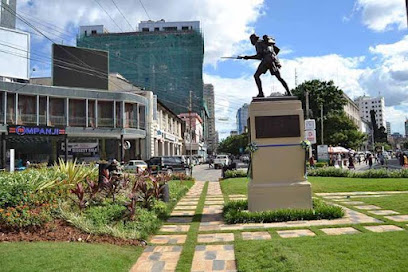
DTV Roundabout
Discover the vibrant atmosphere of DTV Roundabout, a historical landmark and cultural hub in the heart of Dar es Salaam, Tanzania.
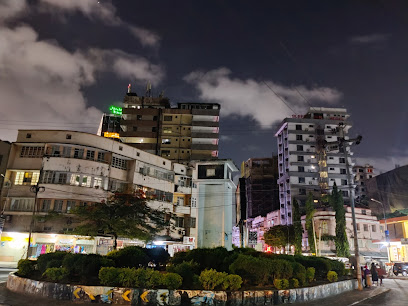
Oyster Plaza
Experience the vibrant atmosphere of Oyster Plaza in Dar es Salaam, where local culture, shopping, and dining collide in a lively setting.

The Green of Oysterbay
Discover comfort and local charm at The Green of Oysterbay in Dar es Salaam, your perfect base for exploring Tanzania's vibrant culture.

Uhuru Monument
Discover the Uhuru Monument in Dar es Salaam, a powerful tribute to Tanzanian independence and a must-see for history enthusiasts.
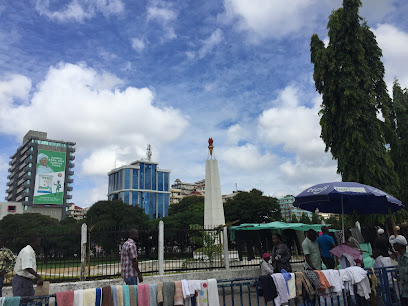
Dar es Salaam War Cemetery
Explore the Dar es Salaam War Cemetery, a serene tribute to soldiers of the World Wars, reflecting on history and sacrifice in Tanzania's vibrant capital.
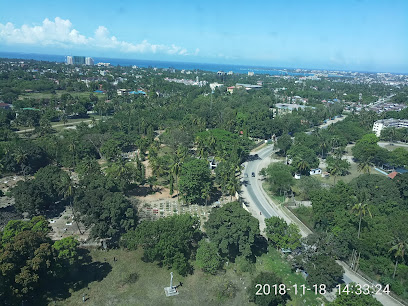
Lighthouse
Explore the iconic Lighthouse in Dar es Salaam, a historical landmark offering stunning ocean views and rich maritime heritage.

Ali Hassan Mwinyi
Explore the Ali Hassan Mwinyi landmark in Dar es Salaam, a historical gem reflecting Tanzania's rich cultural heritage and legacy.

Mbuyuni tree
Discover the beauty and history of the Mbuyuni Tree, a symbolic landmark in Dar es Salaam where nature and culture intertwine.

Monument
Explore the Monument in Dar es Salaam, a captivating historical landmark reflecting the rich heritage and vibrant culture of Tanzania.

water river
Discover the serene beauty and historical significance of the Water River in Dar es Salaam, a must-visit landmark for every traveler.

Unmissable attractions to see
Oyster Pearl Galleria
Experience the beauty and culture of Oyster Pearl Galleria in Dar es Salaam, a serene retreat filled with art, nature, and local charm.
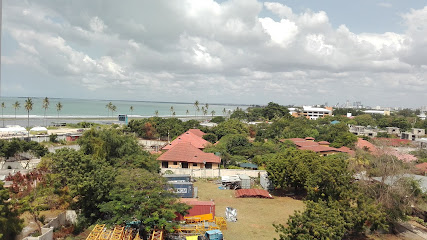
Baobab tree
Discover the awe-inspiring Baobab Tree in Dar es Salaam, a symbol of nature's beauty and cultural significance in Tanzania.

NEW SALENDA BRIDGE
Explore the New Salenda Bridge in Dar es Salaam, a stunning architectural landmark and a perfect spot for capturing the beauty of Tanzania.

Beauty of the Local Unions.
Explore Tanzania's rich cultural heritage at the Local Unions in Dar es Salaam, a vibrant hub of tradition, art, and community spirit.

Sylvester Boats
Explore the stunning waters of Dar es Salaam with unforgettable sailing experiences at Sylvester Boats, a must-visit tourist attraction in Tanzania.
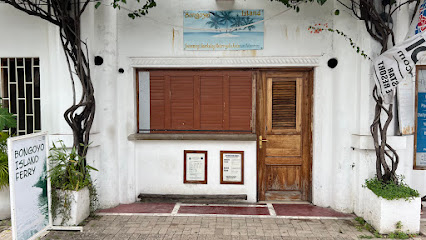
Essential places to dine
Samaki Samaki restaurant
Discover authentic Tanzanian seafood at Samaki Samaki Restaurant in Dar es Salaam - where vibrant flavors meet coastal charm.
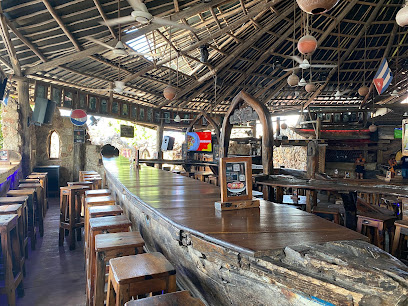
Levant
Discover Levant: A premier restaurant in Dar es Salaam offering exquisite Mediterranean cuisine amidst an elegant atmosphere.
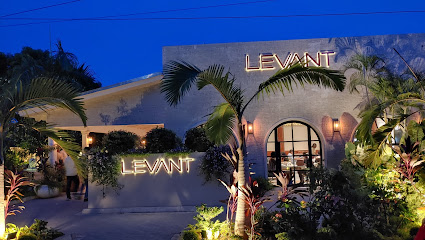
Zûane
Experience authentic Italian cuisine at Zûane in Dar es Salaam - where delicious flavors meet welcoming ambiance.
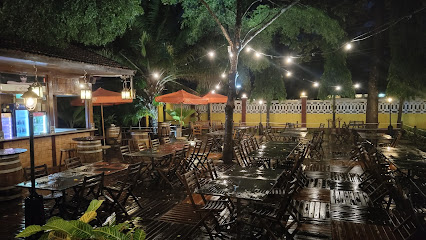
SALT Restaurant
Experience exquisite Tanzanian cuisine at SALT Restaurant in Oyster Bay - where fresh ingredients meet modern culinary artistry.
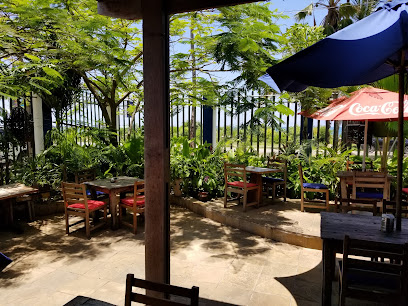
Great Wall Chinese Restaurant
Experience authentic Chinese cuisine at Great Wall Restaurant in Oyster Bay, Dar es Salaam - A culinary journey awaits!
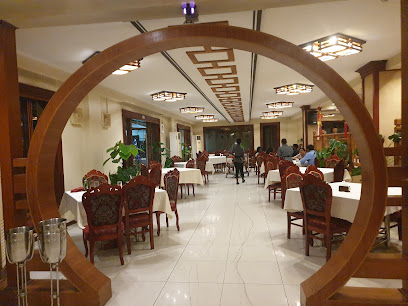
Hoppipola
Experience the vibrant flavors of Tanzania at Hoppipola, a top-rated restaurant in Dar es Salaam offering diverse culinary delights.
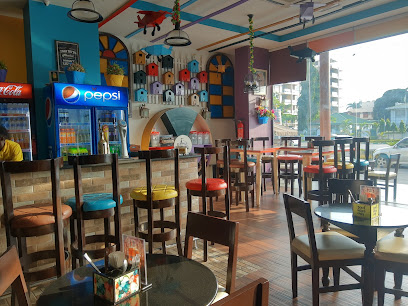
The Happening Place - Restaurant & Bar - Dar es salaam
Discover The Happening Place in Dar es Salaam – A Culinary Delight Blending Local Flavors with International Cuisine.
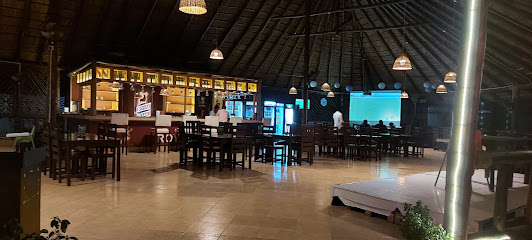
Lock & Barrel Restaurant
Discover culinary delights at Lock & Barrel Restaurant in Dar es Salaam - where flavors meet vibrant ambiance!

The Spice Route Restaurant
Discover exquisite Tanzanian flavors at The Spice Route Restaurant in Dar es Salaam's Peninsula Hotel - a perfect blend of tradition and innovation.

Thi balcony
Experience authentic Asian cuisine at Thi Balcony in Oyster Bay - where every dish tells a story and every meal is a celebration.

Markets, malls and hidden boutiques
LAXRI
Discover LAXRI in Dar es Salaam, a vibrant shopping mall offering diverse retail, dining, and entertainment experiences for every traveler.
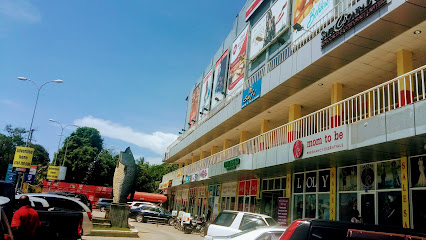
HANDMADE FROM TANZANIA
Explore the colorful world of Tanzanian handicrafts at Handmade from Tanzania, where every piece tells a unique story of culture and craftsmanship.

Rare Flair Boutique
Explore fashion at Rare Flair Boutique in Dar es Salaam, where local style meets modern trends for an unforgettable shopping experience.

Owl Eyes On Me
Explore unique fashion finds at Owl Eyes On Me, a trendy clothing store in Dar es Salaam, reflecting the vibrant culture of Tanzania.

Retail Shop
Explore the vibrant home goods store in Msikitini, Dar es Salaam, and discover authentic Tanzanian crafts and decor that reflect local culture.

Souvenirs shops
Discover unique gifts and local crafts at the vibrant souvenir shops of Dar es Salaam, celebrating the heart of Tanzanian culture.

Kambulaje Gift store
Discover unique handmade gifts and authentic Tanzanian souvenirs at Kambulaje Gift Store in Dar es Salaam, perfect for tourists and collectors alike.

Frola Shop
Explore the charm of Tanzanian craftsmanship at Frola Shop, your go-to destination for unique home goods in Dar es Salaam.

Souvenir Shop
Explore the vibrant Souvenir Shop in Dar es Salaam to find unique handcrafted treasures and cultural memorabilia that capture the essence of Tanzania.

BILKIS BOUTIQUE
Uncover the beauty of Tanzanian fashion at Bilkis Boutique, a must-visit clothing store in Dar es Salaam's Oyster Bay.

Essential bars & hidden hideouts
Elements
Experience the vibrant nightlife of Dar es Salaam at Elements, where innovative cocktails and a lively atmosphere await in Oyster Bay.

George & Dragon
Experience a taste of Britain in Dar es Salaam at George & Dragon, the ultimate pub for food, drinks, and sports enthusiasts.
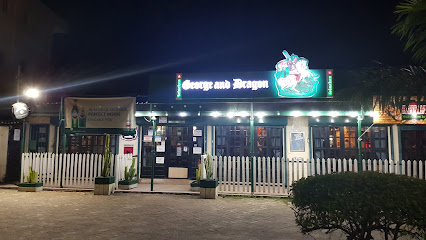
Warehouse
Experience the vibrant nightlife of Dar es Salaam at the Warehouse Bar, where great drinks and lively atmosphere await.

Q2 Bar
Experience the vibrant atmosphere and mouthwatering grilled cuisine at Q2 Bar in Oyster Bay, Dar es Salaam.

TOSCANA WINE BAR
Experience the charm of Tuscany in Dar es Salaam at Toscana Wine Bar, where exquisite wines and delectable Italian cuisine await.

TRINITI
Unwind at TRINITI, a lively bar in Oysterbay, Dar es Salaam, where local flavors and vibrant nightlife create an unforgettable experience.

Genesis Bar
Experience the vibrant culinary scene of Dar es Salaam at Genesis Bar, where delicious grilled dishes meet a lively atmosphere.

Big Joe Lounge
Discover the lively atmosphere of Big Joe Lounge in Dar es Salaam, a must-visit pub for a taste of local nightlife and refreshing beverages.

Bar and restaurant
Experience the vibrant nightlife of Dar es Salaam at this lively bar and restaurant, offering a delightful mix of local and international flavors.

Mama's villaz
Discover Mama's Villaz, a vibrant bar in Oyster Bay, Dar es Salaam, offering refreshing drinks and an inviting atmosphere for locals and tourists alike.

Local Phrases
-
- HelloJambo
[jahm-boh] - GoodbyeKwaheri
[kwah-heh-ree] - YesNdio
[nn-dee-oh] - NoHapana
[hah-pah-nah] - Please/You're welcomeTafadhali
[tah-fah-dah-lee] - Thank youAsante
[ah-sahn-teh] - Excuse me/SorrySamahani
[sah-mah-hah-nee] - How are you?Habari gani?
[hah-bah-ree gah-nee] - Fine. And you?Salama. Na wewe?
[sah-lah-mah. nah weh-weh] - Do you speak English?Unasema Kiingereza?
[oo-nah-seh-mah kee-een-geh-reh-zah] - I don't understandSielewi
[see-leh-wee]
- HelloJambo
-
- I'd like to see the menu, pleaseNingependa kuona menyu, tafadhali
[neen-geh-pehn-dah kwoh-nah meh-nyoo, tah-fah-dah-lee] - I don't eat meatSili nyama
[see-lee nyah-mah] - Cheers!Mambo!
[mahm-boh] - I would like to pay, pleaseNingependa kulipa, tafadhali
[neen-geh-pehn-dah koo-lee-pah, tah-fah-dah-lee]
- I'd like to see the menu, pleaseNingependa kuona menyu, tafadhali
-
- Help!Msaada!
[msah-ah-dah] - Go away!Nenda zako!
[nen-dah zah-koh] - Call the Police!Piga polisi!
[pee-gah poh-lee-see] - Call a doctor!Piga daktari!
[pee-gah dahk-tah-ree] - I'm lostNimepotea
[nee-meh-poh-teh-ah] - I'm illNinaumwa
[nee-nah-oom-wah]
- Help!Msaada!
-
- I'd like to buy...Ningependa kununua...
[neen-geh-pehn-dah koo-noo-noo-ah] - I'm just lookingNatazama tu
[nah-tah-zah-mah too] - How much is it?Bei ni kiasi gani?
[beh-ee nee kyah-see gah-nee] - That's too expensiveHicho ni ghali sana
[hee-choh nee gah-lee sah-nah] - Can you lower the price?Unaweza kupunguza bei?
[oo-nah-weh-zah koo-poon-goo-zah beh-ee]
- I'd like to buy...Ningependa kununua...
-
- What time is it?Saa ngapi?
[sah ah-ngah-pee] - It's one o'clockNi saa moja
[nee sah-ah moh-jah] - Half past (10)Nusu kumi
[noo-soo koo-mee] - MorningAsubuhi
[ah-soo-boo-hee] - AfternoonMchana
[m-chah-nah] - EveningJioni
[joh-ee-nee] - YesterdayJana
[jah-nah] - TodayLeo
[leh-oh] - TomorrowKesho
[keh-shoh] - 1Moja
[moh-jah] - 2Mbili
[mm-bee-lee] - 3Tatu
[tah-too] - 4Nne
[nn-neh] - 5Tano
[tah-noh] - 6Sita
[see-tah] - 7Saba
[sah-bah] - 8Nane
[nah-neh] - 9Tisa
[tee-sah] - 10Kumi
[koo-mee]
- What time is it?Saa ngapi?
-
- Where's a/the...?Iko wapi...?
[ee-koh wah-pee] - What's the address?Anwani ni ipi?
[ahn-wah-nee nee ee-pee] - Can you show me (on the map)?Unaweza kunionyesha (kwenye ramani)?
[oo-nah-weh-zah koo-nee-oh-nyeh-shah (kweh-neh rah-mah-nee)] - When's the next (bus)?Basi la pili ni lini?
[bah-see lah pee-lee nee lee-nee] - A ticket (to ....)Tiketi (kwenda ...)
[tee-keh-tee (kwehn-dah)]
- Where's a/the...?Iko wapi...?
History of Oyster Bay
-
Oyster Bay, located along the coast of Dar es Salaam, became prominent during the late 19th century as German colonial influence expanded in East Africa. The area was developed as an affluent residential neighborhood for German expatriates, showcasing colonial architecture and a lifestyle that echoed European standards. This period marked the beginning of Oyster Bay's transformation into a desirable locale.
-
After World War I, when Tanzania became a British mandate, Oyster Bay continued to grow in popularity. The area attracted a mix of local elites and expatriates, leading to a diversification of its cultural landscape. The British influence introduced new architectural styles and urban planning concepts, further enhancing the neighborhood's appeal.
-
With Tanzania gaining independence in 1961, Oyster Bay became a symbol of the new national identity. The neighborhood retained its status as an upscale area, attracting a mix of local and international residents. Cultural institutions began to flourish, with art galleries, museums, and cultural events that showcased Tanzanian heritage and the rich tapestry of influences from the colonial past.
-
In recent decades, Oyster Bay has evolved into a vibrant hub for both locals and tourists. The establishment of beachfront restaurants, boutiques, and cultural centers has turned the area into a focal point for social and cultural activities in Dar es Salaam. Key landmarks include the iconic Oyster Bay Beach and the nearby Village Museum, which celebrates Tanzanian culture and traditions.
-
As Dar es Salaam continues to grow, Oyster Bay faces modern challenges such as urbanization and environmental sustainability. Efforts have been made to preserve the coastal area and its cultural heritage while accommodating new developments. Community initiatives and government policies aim to balance growth with the preservation of Oyster Bay's unique character and natural beauty.
Oyster Bay Essentials
-
Oyster Bay is easily accessible from various neighborhoods in Dar es Salaam. If you're coming from the city center, you can take a taxi or a ride-sharing service such as Uber, which is widely used in the area. The journey typically takes around 15-30 minutes, depending on traffic. Public buses (daladalas) also operate routes to Oyster Bay, but be prepared for crowded conditions. For those arriving from Julius Nyerere International Airport, a taxi is the most convenient option, taking about 30-45 minutes.
-
Oyster Bay is a relatively small neighborhood, making it easy to navigate on foot. For longer distances, you can use local taxis or ride-sharing services. Public transportation options include daladalas, which are economical but can be crowded. Bicycles are available for rent in some areas, providing a fun way to explore the coastline and local attractions. Be cautious of traffic, as it can be hectic.
-
Oyster Bay is generally safe for tourists, but like many urban areas, it has neighborhoods that are best avoided after dark. Areas near the beach are usually well-patrolled and frequented by visitors. However, be cautious in less populated areas and avoid displaying valuable items. Always remain vigilant, especially in crowded places where petty theft can occur.
-
In case of an emergency, dial 112 for police assistance, or 0784 700 000 for ambulance services. The nearest hospital is the Aga Khan Hospital, which offers comprehensive medical services. It's advisable to have travel insurance that includes medical coverage. For minor ailments, pharmacies are available throughout Oyster Bay.
-
Fashion: Do dress modestly, especially in areas away from the beach. Don’t wear overly revealing clothing. Religion: Do respect local customs; while Oyster Bay is more liberal, it's important to be mindful in more traditional areas. Public Transport: Do give your seat to the elderly and be polite. Don’t eat or drink in public transport. Greetings: Do greet locals with a friendly smile and handshake. Eating & Drinking: Do try local Tanzanian dishes and accept invitations to share meals. Don’t refuse food or drink, as it may offend your hosts.
-
To experience Oyster Bay like a local, visit the local markets for fresh seafood and produce. Engage with vendors, as they often enjoy sharing recipes and cooking tips. Check out local events and festivals that may be happening during your visit, as they offer a glimpse into the vibrant culture of the area. For a unique experience, take a stroll along the beachfront promenade, especially during the sunset, to enjoy the local atmosphere and mingle with residents.
Nearby Cities to Oyster Bay
-
Things To Do in Zanzibar City
-
Things To Do in Stone Town
-
Things To Do in Morogoro
-
Things To Do in Tanga
-
Things To Do in Diani Beach
-
Things To Do in Mombasa
-
Things To Do in Dodoma
-
Things To Do in Malindi
-
Things To Do in Iringa
-
Things To Do in Moshi
-
Things To Do in Arusha
-
Things To Do in Lamu
-
Things To Do in Singida
-
Things To Do in Nairobi
-
Things To Do in Mbeya






